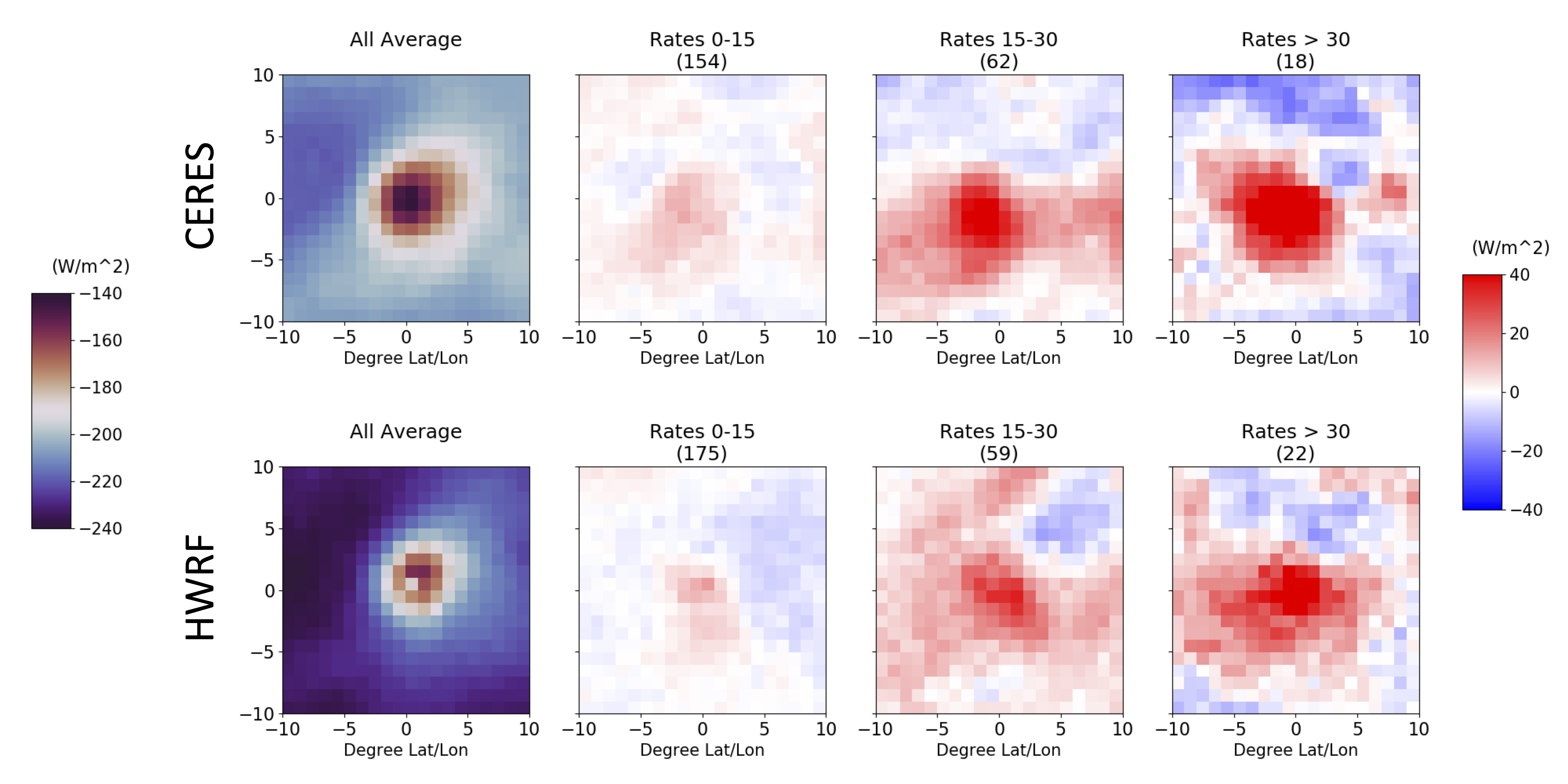Radiative Heating in Accelerating TC Genesis

Introduction
Radiative heating plays a crucial role in the genesis of tropical cyclones (TCs) by influencing the thermodynamic structure of the atmosphere…
Key Points
- Heating difference between storm center and surrounding area
- Enhanced convection in the TC region
- Implications for numerical weather prediction
Project Summary
Tropical cyclones (TCs) intensify when they gain more energy than they lose. Since radiation is the main energy source driving atmospheric circulation, any process that helps keep this radiative energy in the troposphere can enhance TC development. One key process is the role of clouds, which trap outgoing longwave radiation and add extra heat to the atmosphere.
Using numerical simulations and satellite data, we found that TCs with stronger cloud–radiative feedback develop and intensify more quickly than those without such feedback. These findings highlight the importance of radiative heating in accelerating TC formation and strengthening.
Publications about this research:
- Wu, S.-N., & Soden, B. J. (2024). Radiative feedback from dry environmental air accelerates tropical cyclogenesis. Geophysical Research Letters, 51. [link]
- Wu, S.-N., Soden, B. J., & Alaka, G. J. (2023): The influvnce of radiation on the prediction of tropical cyclone intensification in a forecast model. Geophysical Research Letters, 50. [link]
- Wu, S.-N., Soden, B. J., & Nolan, D. S. (2021). Examining the role of cloud radiative interactions in tropical cyclone development using satellite measurements and WRF simulations. Geophysical Research Letters, 48. [link]